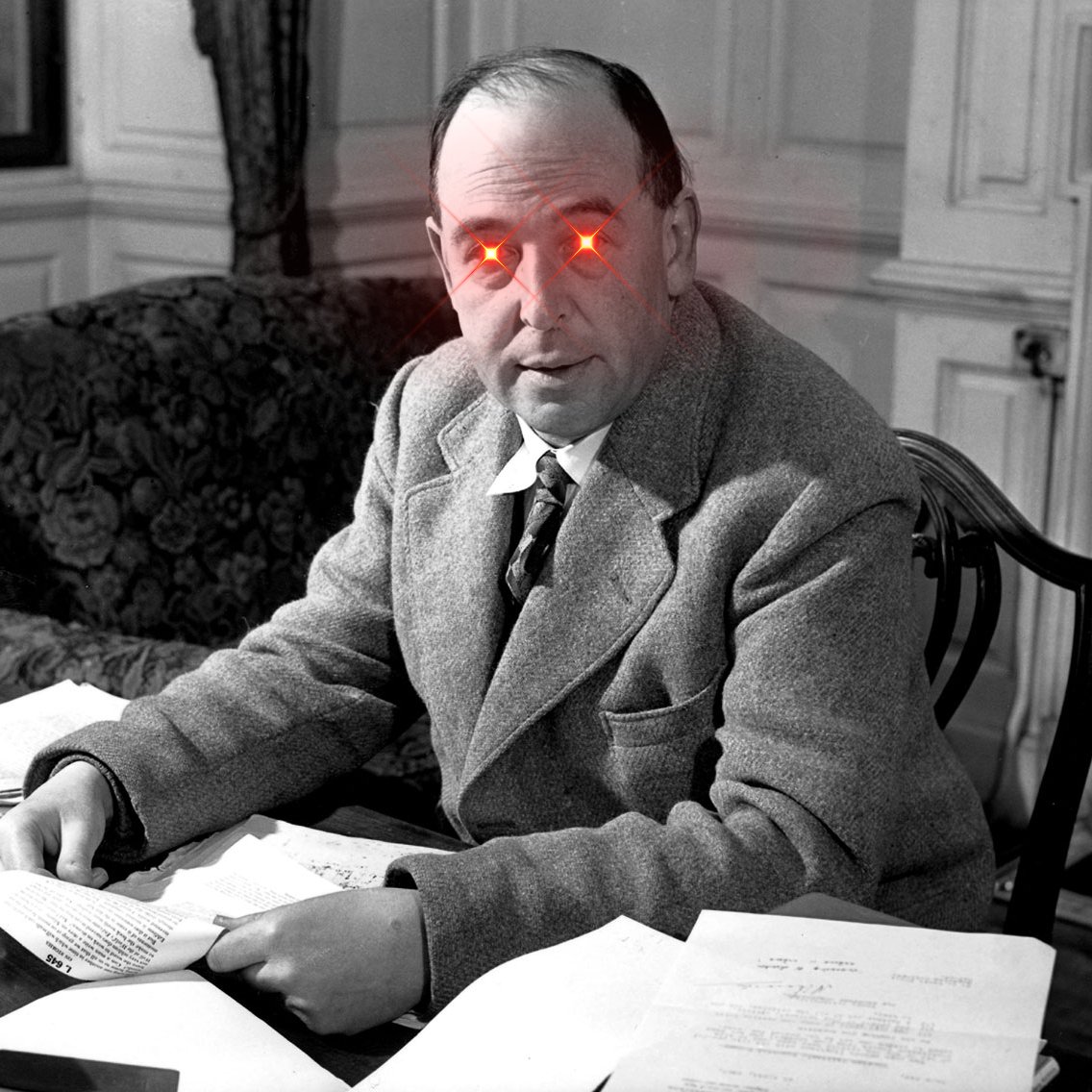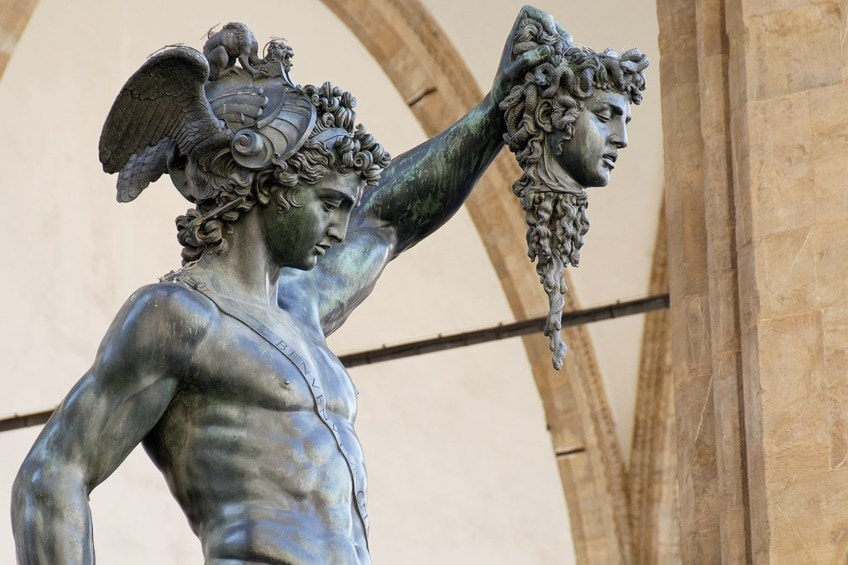C.S. Lewis almost died in the trench warfare of WW-I
Became best friends with Tolkien
Sold 100 million books
On the cusp of WW-II, he gave an iconic lecture at Oxford University (1939)
His question:
Does beauty matter when bombs start falling?
THIS is his profound answer👇🏻
Became best friends with Tolkien
Sold 100 million books
On the cusp of WW-II, he gave an iconic lecture at Oxford University (1939)
His question:
Does beauty matter when bombs start falling?
THIS is his profound answer👇🏻

1/ The permanent human situation is endless strife, chaos and pain
C.S. Lewis:
“Human life has always been lived on the edge of a precipice. Human culture has always had to exist under the shadow of something infinitely more important than itself”
Yet culture breaks out
C.S. Lewis:
“Human life has always been lived on the edge of a precipice. Human culture has always had to exist under the shadow of something infinitely more important than itself”
Yet culture breaks out

2/ If we waited for peace to create art the first cave painting would still not be made
Always some “imminent danger” looking more important than culture
Lewis: “If men had postponed the search for knowledge and beauty until they were secure, the search would never have begun”
Always some “imminent danger” looking more important than culture
Lewis: “If men had postponed the search for knowledge and beauty until they were secure, the search would never have begun”

3/ Insect life v/s Human Life
CS Lewis:
“The insects have chosen a different line: they have sought first the material welfare and security of the hive, and presumably they have their reward. Men are different”
We demand not just mere continuity but variety, growth, adventure

CS Lewis:
“The insects have chosen a different line: they have sought first the material welfare and security of the hive, and presumably they have their reward. Men are different”
We demand not just mere continuity but variety, growth, adventure


4/ C.S. Lewis on why humans are a truly unique species:
"Men propound mathematical theorems in beleaguered cities, conduct metaphysical arguments in condemned cells, make jokes on scaffolds, and comb their hair at Thermopylae. This is not panache; it is our nature."

"Men propound mathematical theorems in beleaguered cities, conduct metaphysical arguments in condemned cells, make jokes on scaffolds, and comb their hair at Thermopylae. This is not panache; it is our nature."


5/ Right on the “front line,” soldiers don’t talk of the “allied cause” or the “progress of the campaign”
They’re instead concerned with stories, myths, fateful open-ended questions
They desire “aesthetic satisfactions”
If they wont “read good books” they will "read bad ones”
They’re instead concerned with stories, myths, fateful open-ended questions
They desire “aesthetic satisfactions”
If they wont “read good books” they will "read bad ones”

6/ CS Lewis on good ideas:
“Good philosophy must exist, if for no other reason, because bad philosophy needs to be answered. The cool intellect must work not only against cool intellect on the other side, but against the muddy heathen mysticisms which deny intellect altogether”
“Good philosophy must exist, if for no other reason, because bad philosophy needs to be answered. The cool intellect must work not only against cool intellect on the other side, but against the muddy heathen mysticisms which deny intellect altogether”
7/ The soul feeds on truth and beauty like the body feeds on food:
“God makes no appetite in vain. We can therefore pursue knowledge and beauty in the sure confidence that by so doing we are either advancing to the vision of God ourselves or indirectly helping others to do so”
“God makes no appetite in vain. We can therefore pursue knowledge and beauty in the sure confidence that by so doing we are either advancing to the vision of God ourselves or indirectly helping others to do so”

8/ C.S. Lewis on why we must study the past:
“Not that the past has any magic about it, but because we cannot study the future, and yet need something to set against the present, to remind us that the basic assumptions have been quite different in different periods”

“Not that the past has any magic about it, but because we cannot study the future, and yet need something to set against the present, to remind us that the basic assumptions have been quite different in different periods”


9/ Past as immunity from new-age BS:
“A man who has lived in many places is not likely to be deceived by the local errors of his village; the scholar has lived in many times and is therefore…immune from the great cataract of nonsense that pours from the press of his own age.”
“A man who has lived in many places is not likely to be deceived by the local errors of his village; the scholar has lived in many times and is therefore…immune from the great cataract of nonsense that pours from the press of his own age.”

10/ Don’t wait for spare time to know what you want to know and to chase what you want to chase
C.S. Lewis: “The only people who achieve much are those who want knowledge so badly that they seek it while the conditions are still unfavorable. Favorable conditions never come.”
C.S. Lewis: “The only people who achieve much are those who want knowledge so badly that they seek it while the conditions are still unfavorable. Favorable conditions never come.”

C.S. Lewis was a brilliant thinker
Always rewarding to read
I've been reading his classic books along with his obscure lectures, and collecting the insights in one place: memod.com/jashdholani/bo…
Find inside:
• The nature of hell
• Wisdom v/s Science
And more!
Always rewarding to read
I've been reading his classic books along with his obscure lectures, and collecting the insights in one place: memod.com/jashdholani/bo…
Find inside:
• The nature of hell
• Wisdom v/s Science
And more!
Thank you for reading fren!
I appreciate your time
If you enjoyed this thread
Do RT👇🏻
And C.S. Lewis-Pill your TL!
I appreciate your time
If you enjoyed this thread
Do RT👇🏻
And C.S. Lewis-Pill your TL!
https://twitter.com/oldbooksguy/status/1636381847193272323?s=20
• • •
Missing some Tweet in this thread? You can try to
force a refresh










